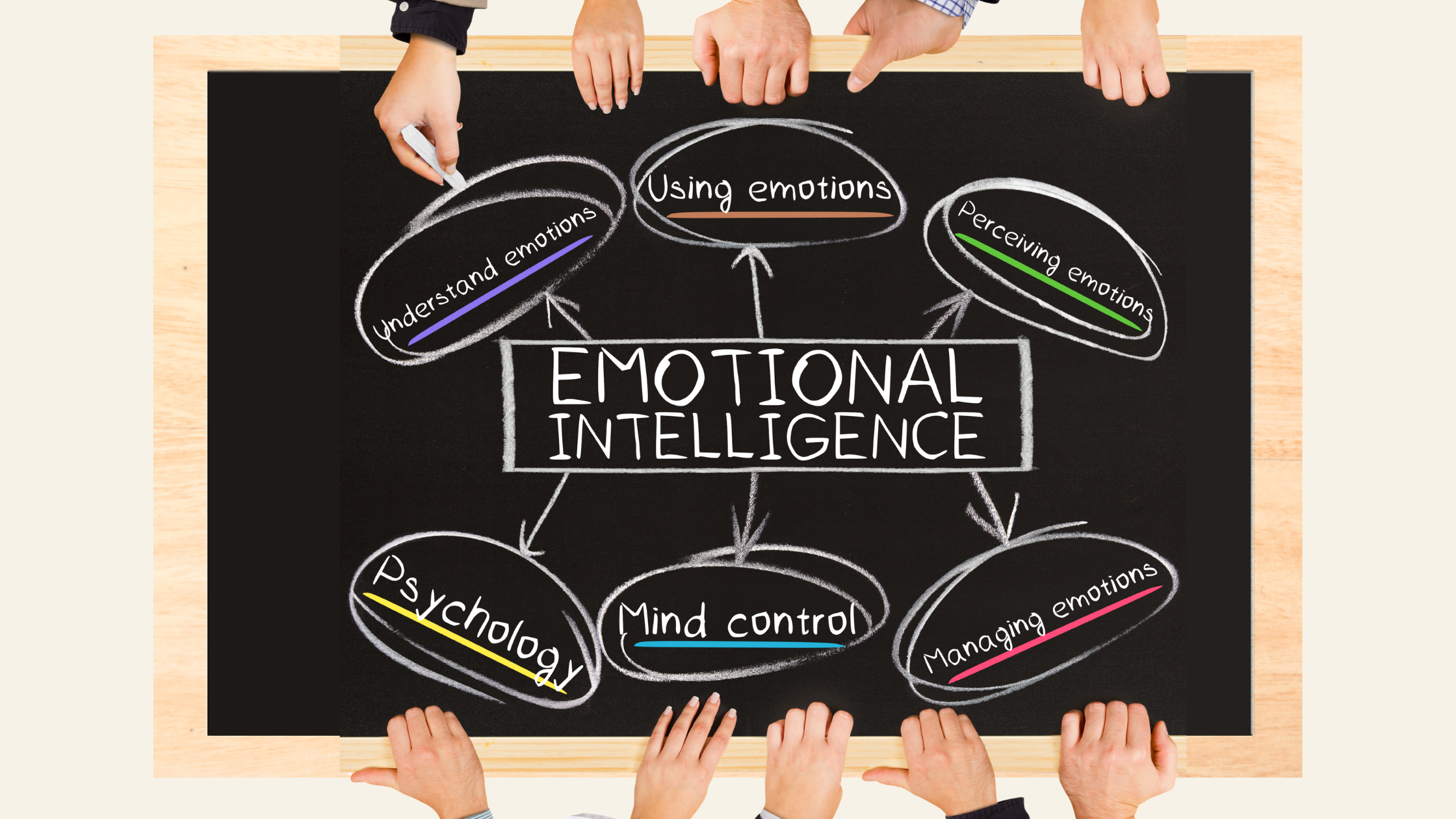Emotional Intelligence: Why Naming and Feeling Your Emotions Changes Everything

For some of us, being honest about our emotions just doesn’t come naturally.
Maybe that’s because we grew up in homes where expressing emotions just wasn’t done. Maybe phrases like “Big girls don’t cry” or “Act like a man” were the norm in your family. Or maybe you have been told you are too much, too sensitive, too emotional.
Sometimes suppressing our emotions was something that we developed later in life as a safety mechanism while in a toxic or abusive relationship.
If any of that sounds familiar, you’re not alone. I’ve lived both.
I grew up in one of those households where crying was not met with sympathy, vulnerability was definitely not seen as a strength, and anger was not something that children were allowed to express (without consequences).
Then I married young, to someone with substance abuse and anger issues. Tears were met with indifference and anger was sometimes met with violence. The combination of insecurity and self-protection became my norm. Fortunately, I had the sense to leave – but I brought a lot of baggage with me.
So even almost 20 years later when my son died, I had no real emotional awareness, and certainly not emotional intelligence - I fell right back into those old patterns of hiding my emotions behind a mask because I didn’t really know another way. On the outside, I looked “strong.” Inside, I was falling apart.
And here’s a hard truth I didn’t begin to learn until after the most traumatic event of my life. Suppressing or hiding our emotions doesn’t make them go away. It just makes them show up later - in our minds, our bodies, and our relationships.
So let’s talk about emotional intelligence.
Forget the corporate HR buzzword for a second. Emotional intelligence isn’t about performance reviews or trendy employee seminars and workshops - it’s about the hard parts of being human. A bit about survival, a bit about connection, and a lot about healing.
At its simplest, it’s the ability to:
- Recognize what you’re feeling
- Name it accurately
- Understand where it’s coming from
- Respond in a way that’s healthy - for you and for the people around you
And one of my missions in life is to help others understand that. Because learning to do it can literally change your life.
Your Brain on Emotions
Here’s a little brain science (don’t worry, no quiz at the end 😉).
When something happens - let’s say your boss makes an off-hand comment that stings - your brain reacts in a split second. The amygdala (part of your limbic system) picks up the cue, compares it to old memories, and triggers your body: pounding heart, tense shoulders, hot face.
All of that happens before you’ve even had time to think. As Brené Brown puts it: “They call them feelings because they show up in our bodies first.” (Brown, 2021) Atlas of the Heart
But… When we name the emotion - “I feel angry” or “I feel hurt” – we’re not just being self-aware. We’re actually soothing our limbic system which allows the more rational parts of our brain to step in.
That’s why emotional intelligence isn’t fluffy self-help. There’s no woo-woo involved. It’s neuroscience in action.
One of my favourite tools to help us reel in our amygdala’s over-active pursuit of safety (because that’s essentially what it’s trying to do) is something I call “Name It to Tame It.”
Here’s how it works:
- Pause and take a few deep breaths (calms the nervous system).
- Name the emotion as best you can.
- Get specific if you can. Is it anger - or frustration? Sadness - or loneliness? Fear - or anxiety?
- Notice the thoughts connected to those feelings.
- Write down a quick sentence to describe it.
If this feels hard at first, try using a Feelings Wheel (Google it - there are lots of versions). Expanding your emotional vocabulary makes it easier to regulate your responses.
Why It Matters for Healing
Unprocessed emotions keep the stress response firing in our bodies. Chronically. Which results in higher cortisol, increased risk of digestive issues, heart problems, a weakened immune system, even depression.
Whereas developing emotional awareness and intelligence helps us:
- Reduce stress
- Improve relationships
- Make better decisions
- Build resilience
Healing can’t happen while we’re pretending everything’s okay. It starts with learning how to feel our way through it - one emotion at a time.
A Reflection for You
Here’s a simple exercise to try this week:
Ask yourself: What emotion do you struggle to name or acknowledge - and what might shift if you gave it space this week?
Final Thoughts
Emotions aren’t weakness. They’re part of what makes us beautifully, wonderfully human.
If you weren’t taught how to feel them, you can learn. We all can. And in that learning, there’s healing.
Looking for more on this? Check out the full podcast at:
https://transformativejourneys.buzzsprout.com
💜 Or grab my Essential Resiliency Toolkit on the Free Toolkits page on my website at: https://transformativejourneys.ca/
